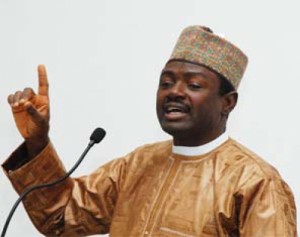New Sugar Master Plan might attract over $1Billion in both local, foreign direct investments
 The Federal Government has approved a New Sugar Master Plan, NSMP, which might attract over $1 billion in both local and foreign direct investments and create over 107 thousand directs jobs locally in the next 10 years.
The Federal Government has approved a New Sugar Master Plan, NSMP, which might attract over $1 billion in both local and foreign direct investments and create over 107 thousand directs jobs locally in the next 10 years.
The Minister of Information, Labaran Maku, said this when he briefed journalists at the State House after the weekly Federal Executive Council meeting, in company of Minister of Trade and Investment, Olusegun Aganga.
Mr. Maku spoke about other benefits of the NSMP including the generation of 400 mega watts of electricity.
“If Nigeria could achieve the level of local production envisioned in the NSMP, she stands to derive the following benefits: 1,797,000 tonnes of sugar annually; 161.2 million litres of ethanol annually; 400 MW of electricity annually,” he said.
The new policy is expected to also generate about 1.6 million tonnes of animal feeds annually; 37,378 permanent jobs; $65.8 million savings in forex on fuel imports annually; and $350 million saving in forex on sugar imports annually.
The Minister of Trade and Investment who presented the memo for the NSMP, Olusegun Aganga, added that the new policy will provide a regime of fiscal and investment incentives over the next ten years in the development of sugar.
Mr. Aganga who lamented the shortage of locally produced sugar in Nigeria, and indicated that Nigeria currently spends as much as N101 Billion in importing 93% of sugar required, with a production rate of only 3 percent.
Mali produces 28% of its sugar requirements while Benin produces as much as 25%.
Mr. Maku further explained that “in order to reverse the decline in the sub-sector, the NSMP has spelt out the sugar and ethanol projections required to achieve self-sufficiency in these commodities and indicated that the number of factories and sugarcane hectares, and number of skilled and unskilled staff required.”
“The implementation of the NSMP as conceived would entail many projects which would cover all geo-political zones of the country since suitable sites for cane proxy exists across the ecological zones.
“Nigeria is currently spending N101Billion on sugar import, and this is the time we need a lot of fund conservation, we also need to create a lot of employment opportunities, employment market cannot move if we have to import the basic need of this nation, including sugar from abroad,” the information minister said,” he said.
The Federal Executive Council also deliberated on the state of the Federal and State Universities in the country and concluded that the government needs to increase its efforts at giving the higher institutions more supports.
Mr. Maku said the FEC also deliberated on the report of an extensive assessment of the Universities.
He noted that the committee which carried out the assignment consisted of representatives of the Academic Staff Union of Universities, National Universities Commission, and the National Assembly.
He said the report dwelt extensively on issues relating to infrastructure, funding, proper utilisation of resources, and staff strength in 37 federal and 37 state universities across the country.
The minister said one of the issues raised was the need to strengthen the regulatory agencies in order to put them on a better stead to enforce basic minimum standards that would make the nation’s universities comparable to any university in the world.
He added that because some of the issues raised are more complicated in state universities, the President had directed that the report be presented to the National Economic Council so that state governors would also contribute.
Source: Premium Times




